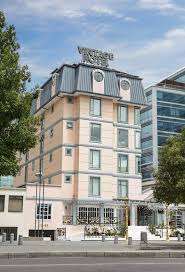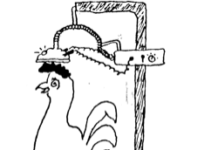Covid’s menace has reinforced the pleasure of reminiscence, to hark back to the past for something treasured and secure. Shadows of uncertainty amplify the pull of nostalgia, of radiant times and certain faith. Memories, like old furniture, acquire the gleam of usage against the tarnish of separation and loss.
One of mine starts long ago on a winter afternoon in Lincoln. Mom and dad packed us children into the car and we headed to Kansas City for Christmas with grandparents – and aunts, uncles, and cousins thrown in. All the noise and color of a big, bustling city would be ours for the holidays with an extra treat: we would stay in a hotel, a first for us kids.
Kansas City, Kansas at the time was magical for children from a small town: Grandparents lived up the Trafficway from downtown, its great high buildings, trolleys clacking over the tracks, people busy and bustling. In the city lay the thrill of our first escalator, our first elevator, ascending with strangers to unexplored heights, our spirits soaring. Imagine it all with the clamor and scuttle, the scents, the rhythms of a city at Christmastime.
It had begun to snow as we climbed out of the car. A strange man in uniform came to help with the suitcases. We followed mother inside, skipping through the grand lobby, past the clusters of people and their piles of luggage, waited and waited, and then to our first elevator, soaring up and up, the lumps rising in our throat, ears popping, then out into the long double-loaded corridor lined with guest rooms, a hallway filled with the scent of consequence, an aroma of cleanliness and authority. This was the smell of a place where grown-ups came to be important.
This was the Town House, 15 stories of blonde brick, clean corners, gleaming metal and polished woodwork. It was our first room so high in the air, our first corner casement window, cranked open to let in the snow and the view down, down and down, to the street and its tiny cars inching this way and that. Little specks of people moved slowly along the sidewalks as the flakes floated down through the light to meet them. Nothing was so glamorous as being in a place this high, looking down, seeing the world on a strange new palette.
Two nights later we were at our grandparents’, another radiant day in the city behind us. It had begun to snow again, great flakes tumbling through cones of light from the old iron street lamps. We were supposed to be in bed, but something in the quiet night had awakened us. The light off the snow made a bright night, and we watched the snow, all of it, glad to be closer to the ground, closer to the sidewalk curving away, up the street, glad to be at home again at grandparents’.
We weren’t so far from the Town House, now an apartment building and now officially declared historic. But we were close enough, then, to remember the place and the Christmas that came with it, for a long time.
**
Nature’s reset, unset
A long hard freeze is the mark of a proper Kansas winter. Sharp cold once lasted from pre-Christmas through Valentine’s Day and into March’s Ides. We’ve even known a good snow in April.
Hard weather gave footing to the calendar. There was the occasional balmy surprise, but winter was more snow and blizzard than not. Until recently, a winter with prolonged mild weather was unsettling, out of bounds, inconsistent. Golf weather in February raised doubts, the vague feeling that unscheduled blessings carry a price to be named later.
Any more, winter comes for an occasional visit. Climate change has evicted our hard winters and throttled nature’s natural reset. A long freeze in Kansas was necessary to stifle the threat of disease-spreading insects, stop the smaller life forms that tend to threaten horticulture and agriculture and spoil the simple pursuits in spending time outdoors.
Dormancy, that nurturing sleep for lawn and garden, is throttled. Michael Pollan, the environmental writer, believes that gardens may require walls in time as well as space. “The garden winter doesn’t visit is a dull place, robbed of springtime, unacquainted with the extraordinary perfume that rises from the soil after it’s had its rest.”
Winter’s rebooting, its raw icing, brings a sense of satisfaction and reassurance; a Kansas winter without sustained cold and good snowfall should bring unease and suspicion.
Winter is the landscape’s necessary reboot, says Pollan. Spring marks the earth’s return to freshness, a promise that cannot be kept, if not for the frost.
The long cold snap is nature’s frozen caress, one that says, You’ll thank me later.





